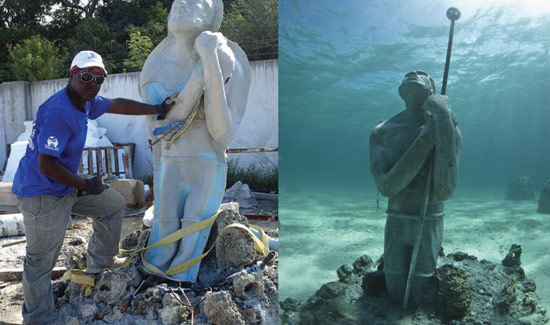For the most part, the government has been rather nonchalant about the MSC Eugenia oil leak in Bahamian waters. Yet, this “at sea” event was picked up by the Associated Press and made international news in places such as Vancouver, Las Vegas, and the online media behemoth The Huffington Post. Though the outcome of the NIB allegations is of extreme importance, such news does not excite international press coverage like an oil spill.
An oil spill in The Bahamas is inevitable. With millions of barrels of fuel being shipped across Bahamian waters, another leak or spill will occur. And the international press will again be reporting and disseminating information about our performance to hundreds of millions of people around the world. Our reaction and response to spill events will be judged by would-be tourists, investors, and homeowners. The international press coverage easily exceeds any paid promotions by the Ministry of Tourism.
 This spill is indeed a “wake-up call” for adequate oil spill response now. Regardless of the outcome for potential commercial drilling, The Bahamas faces an imminent at sea and nearshore spill event. Undoubtedly, the government has benefited from contingency planning for potential commercial drilling by BPC. Surely, oil response plans have been reviewed and updated during on-going commercial discussions? Or have they?
This spill is indeed a “wake-up call” for adequate oil spill response now. Regardless of the outcome for potential commercial drilling, The Bahamas faces an imminent at sea and nearshore spill event. Undoubtedly, the government has benefited from contingency planning for potential commercial drilling by BPC. Surely, oil response plans have been reviewed and updated during on-going commercial discussions? Or have they?
Deepwater Horizon looms in recent memory because of the remarkable lack of adequate contingency planning. Emergency contact personnel information was insufficient, back-up mechanisms failed and official communication lagged behind real-time social media. The Gulf Coast suffered tremendous economic loss from a risky drilling location and poor risk management.
The Bahamas cannot afford the same fate. We must ensure that all vessels, ports, and emergency responders are prepared to respond efficiently and effectively to a leak or spill near any one of our 700 islands. Our contingency planning must support response for spills ranging from small to large, Tier 1 to Tier 3.
Minister for Transport and Aviation Glenys Hanna-Martin was right to hold a press conference the same day of the spill. Her assurance and explanation of procedures undertaken by the crew of MSC Eugenia to contain the leak quelled potential exaggeration of the environmental threat. Needless to say, we are eager to read, in what should be made public, the investigative report by marine inspectors, engineers and port officials.
Amid some controversy of response procedures, it appears that The Bahamas escaped relatively unharmed. But the public needs assurance that the government is prepared to handle future spills and those spills with immediate and profound impacts to the coastal marine environment. The government should document lessons learned and update spill response plans accordingly.
The Bahamian archipelago covers vast waters that cannot possibly be monitored for discharge and spills off-shore and out of sight. Just as illegal immigrants and poachers navigate our waters unnoticed or unreported, it is likely that spills occur as well. New Providence is not immune. Clifton poses a considerable threat to western New Providence where oil tankers berth to provide diesel for our generators.
Contingency planning for an oil spill, whether small or catastrophic, must be continually reviewed, updated and practiced. Oil spills make international headlines. The Bahamas must act decisively and appropriately to any spill event.
Editorial in The Nassau Guardian



